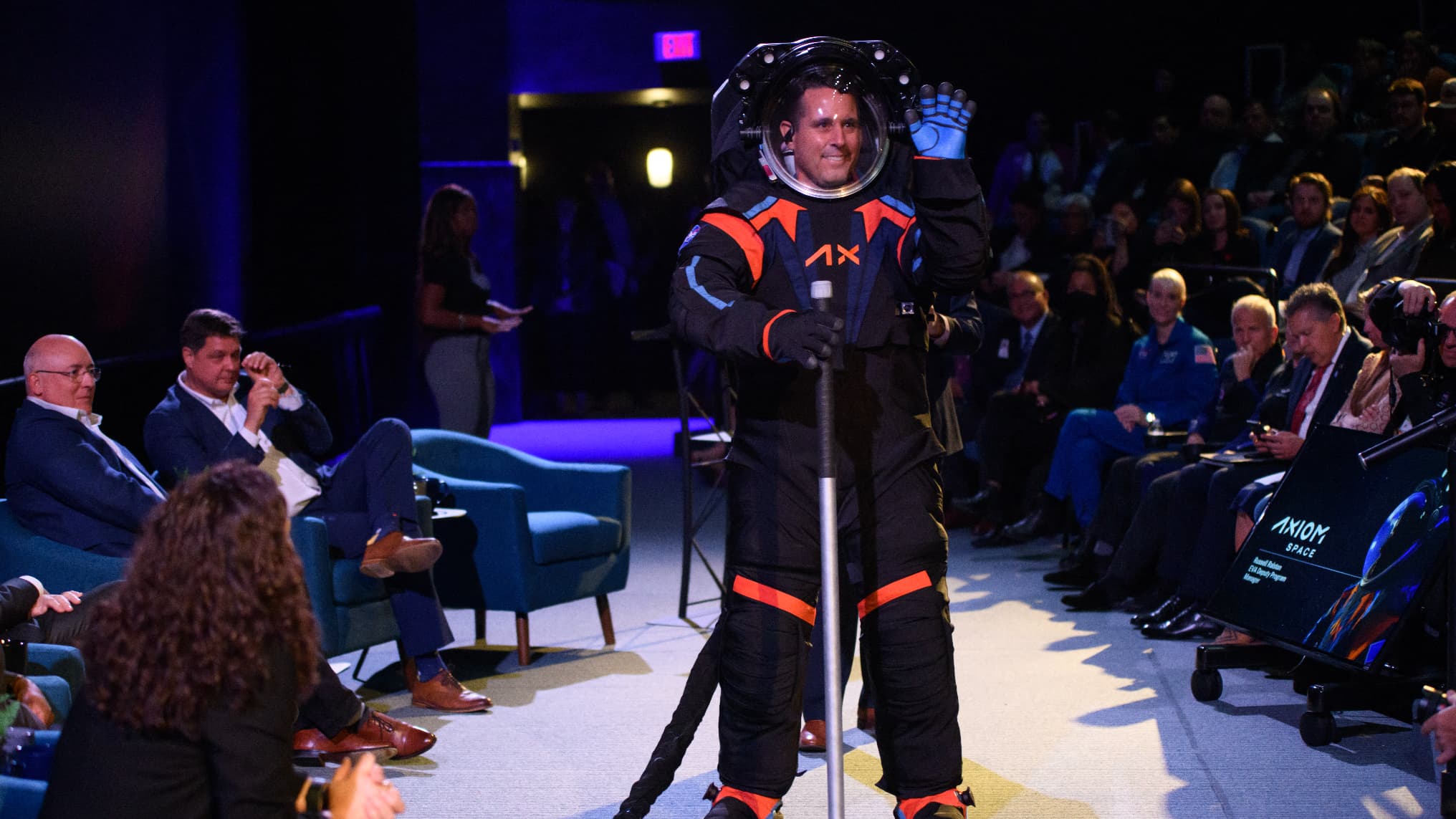
NASA and Axiom Space reveal the suit to the next astronauts on the moon
More mobile and allowing for wider movements, astronauts on the Artemis 3 mission must wear the new spacesuit developed by Axiom Space.
“Now, the moment you have all been waiting for!” On stage, a man steps forward to shrieks of joy and applause. The reason for this excitement is not who he is, but rather what he is wearing: a prototype of the new space suit that the next astronauts will wear on the moon.
The event on Wednesday in Houston, Texas, was organized by NASA and Axiom Space, which was awarded the contract to develop the suits for the Artemis 3 mission a few months ago.
More mobile combination
The US space agency’s mission, officially scheduled for 2025, is to land astronauts on the moon for the first time in more than half a century, including the first woman.
In Houston, Chief Engineer Jim Stein was chosen to don the suit, and he demonstrated it by waving his arms, crouching, and even crouching. One of the great advancements of this modern suit, compared to the Apollo programme, is the improved mobility and range of motion.
One thing won’t change: It will always be white, stressed Russell Ralston, vice president of spacewalk program at Axiom Space.
White makes it possible to better reflect the sun’s rays, to better regulate the temperature inside the suit. If the prototype presented on Wednesday was black and orange, that’s because it included an extra layer meant to keep certain aspects of the development secret.
$228.5 million wardrobe for Artemis
In fact, for the next Artemis mission contracts, Axiom Space is still in competition with Collins Aerospace.
NASA paid $228.5 million for this first contract for Artemis 3. “Any European would look great there, and no doubt many would have the opportunity to wear it…” French astronaut Thomas Pesquet responded on Twitter. “But I don’t know, I guess it would still look good on me, wouldn’t it?”
On the Moon, suits must be able to withstand a particularly harsh environment. The South Pole, where the Artemis missions will land, can withstand temperatures in excess of 50°C, but it’s also very cold (below 200°C at the bottom of some craters). Other difficulties: dust or sharp stones.
Several sizes are available
Russell Ralston explained that the materials used for the different layers of the suit are insulating, resistant to the risk of rupture, and prevent dust from sticking.
The suits won’t be entirely customized to each astronaut, but there will be different sizes. The helmet has headlights and an HD camera that allows you to follow the exit directly from the ground.
The astronauts will put on the suit by opening it in the back. They’ll also carry a backpack that will hold what they need to survive: “like a bottle of compressed air and a very sophisticated air conditioner, combined,” describes Russell Ralston.
The suits can be worn for at least eight consecutive hours, for sampling and other scientific research.
If the company describes the suit as “revolutionary,” one thing hasn’t changed compared to Apollo time: For their natural needs, astronauts will always wear layers underneath.
Suits leased by NASA
Space suit development is very difficult, and hasn’t been done in the United States since the days of the Space Shuttle. Thus, the technology currently used for flights outside the International Space Station (ISS) is the same as it was about 40 years ago.
Axiom Space and Collins Aerospace are also responsible for developing new spacewalk suits. Until now, NASA had owned its suits, but decided on a different model for the future, by leasing them to the private sector.
Those developed by Axiom, called AxEMU (for Axiom Extravehicular Mobility Unit), account for about 50% of NASA’s recent research and development, which has made its knowledge available to companies, said Michael Suffredini, president of Axiom Space.
The company plans to build its own space station, and therefore it itself will need something to fit its future customers on board.
The most important items

“Incurable web evangelist. Hipster-friendly gamer. Award-winning entrepreneur. Falls down a lot.”
